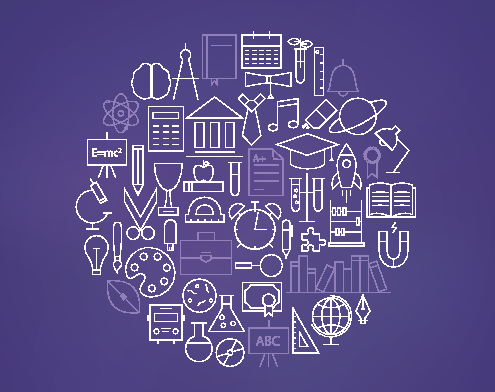What is ‘Non-Academic Data’?
A big part of the work Indigo does is providing schools ‘non-academic data’ that can be used to connect better with students and personalize education. But this begs an obvious question: what the heck is ‘non-academic data’?
It’s a question we get a lot at Indigo, and we understand. The phrase ‘non-academic data’ sounds like it should be in the small print of a nutrition facts next to words like ‘Dietary Fiber’ or ‘Vitamin B2’. It’s not the kind of term that gets thrown around in everyday life.
Here’s how we like to think about it at Indigo. Remember the buzzword ‘Big Data’ that took off a few years ago? What we do is human big data. We look at the behaviors, motivators, skills, and strengths of students, teachers, and administrators to identify trends that are going on in classrooms, schools, and districts.

So there’s academic data like grades, scholarship dollars, and ACT scores; and then there’s everything else. At Indigo, we focus on everything else.
But again, it begs yet another question: what can you do with non-academic data?
The short answer: *a lot*
The long answer: we’re still learning all the ways it intersects with education, and we’re looking to some of our most innovative schools to work with us in discovering them. Here’s just a few ways Indigo is leveraging non-academic data to make a big impact:
1. Classroom Analytics
If you’re a teacher, then you get it: some years, you get that fifth period class that seems to be full of troublemakers. What makes them different than your second period students who are always kind, polite, and write assignments in legible handwriting?

With Indigo data, teachers can see what makes each classroom unique and understand how the students in the room perceive their own behaviors and motivators. It gives teachers the ‘in’ to learn about their students faster and troubleshoot ways to make each class a success.
2. Mentor Pairing
We all love mentor-mentee programs. It’s just cool to see a senior pouring into a freshman’s life. Imagine if you could match students even more intelligently?

By looking at motivators, educators can find students who connect with each other. Instead of just pairing up a senior and a freshman because they are both in the yearbook club, what if you could pair them up because of a shared, mutual desire to find balance and harmony in the world?
3. Grade Correlations
We’ve been doing a lot of exciting work on the university level with this. We all want to know why certain students ace, and others drop out. Student success is an ever-evolving Rubik’s Cube, and there is no copy-and-paste answer that meets all schools and cultures. But what if you could diagnose the symptoms of success in your school?

By lining up Indigo data with grades, we can look for trends in academic success. For example, the students who are getting the most A’s may be the students who are high in Compliance (detail-oriented, logical, cautious), while students who are getting mostly C’s and D’s may be higher in Influencing (talkative, relationship-focused, easily distracted).
From there, helping the high Influencing students succeed is just a matter of reorienting the lesson plans to involve more group discussion and collaboration. Educators using Indigo can make smarter, faster bets on how to improve failing students.
4. Teacher Coaching
We’re always growing and learning as adults. We want to find new ways to succeed using our strengths. Some of our best schools are using Indigo to have positive, teacher-initiated conversations about how Indigo can be used to help teachers continue growing.

Here’s an easy example: one teacher we worked with was 98 out of 100 in Dominance (direct, competitive, blunt). This teacher realized they had a gift at teaching in front of large groups, and that they should seek out more opportunities to get in front of larger groups of students. Even a conversation as simple as that can help orient an educator toward their strengths.
It doesn’t matter how old you are – we all can benefit from honest conversations about ways to use our strengths!
5. College and Career Counseling
You want to push forward your college and career advising game into the next century? Use Indigo data. If you can help students identify what type of environments fit their communication styles (Dominance, Influencing, Steadiness, Compliance) and what gets them excited in life (Motivators), you can radically change the effectiveness of your advising center.

Not only can it help students find out faster what they want to do (shortening the amount of time it takes counselors to get students to that “aha!” moment), but it can help students get placed in future paths that they’ll stick with (increasing retention and success at the next step). Our Director of Training and Advising works with dozens of counselors across the United States to help them make the transition into using Indigo’s non-academic data as a cutting edge college and career tool.
So what really is ‘non-academic data’? It’s part of the solution to modernizing education. It’s the foundation of what the Whole Child Initiative will one day lead us into as country. Successful education will always be relationship based, and human big data will help educators reach more students better, faster, with a lasting impact.
To learn more about how Indigo can work with your school to bring human big data to your school, contact us at info@indigoproject.org!
What is ‘Non-Academic Data’? Read More »

